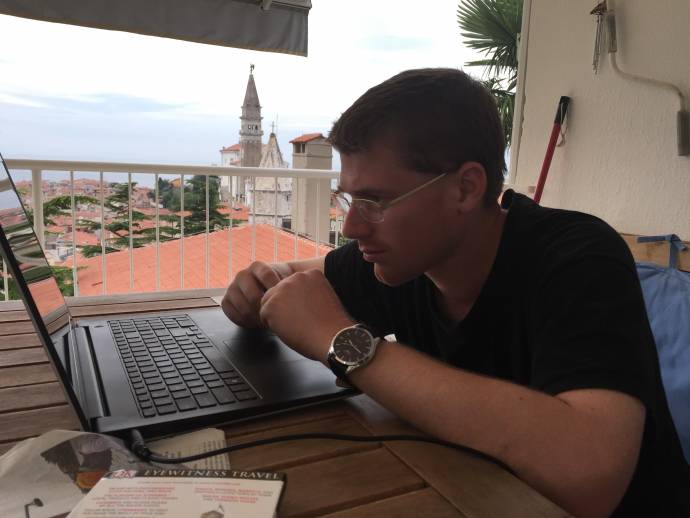June 08, 2018
One of the great dreams of many people is to move to another country, perhaps to a picturesque European city with a high quality of life, settle into an apartment with a view and start work on a book, taking breaks for rest and inspiration by walking the narrow streets, finding a comfortable café, and watching life unfold.
While some, your correspondent included, end up taking decades-long detours engaged in dubious “research” before sitting down at the keyboard and finding gainful employment as an honest hack rather than a novelist, others are more direct in achieving their ambitions.
Related: Watch Andrew's episode of House Hunters International, Parent Roomates in Slovenia, here
One such individual is Andrew Anzur Clement, an American who moved to Ljubljana and just this year has managed to publish five books in the historical fantasy series Keepers of the Stone, and it’s still only June. Moreover, Slovenia doesn’t just provide the location of his new home, but the background to his family and stories.
On the occasion of the publication of the latest book, Voyages of Fortune: Hidden Truths, we sent him some questions about what it’s like to move here as a Slovene-American and start a career as a writer, and he was kind enough to take some time out of his busy typing schedule to send back these replies.
When and why did you move to Slovenia?
I’ve been living in Slovenia since December 2017, but have been here many times over the past ten years. My mom’s family is originally from the town of Kresnice, east of Ljubljana, and left for the US shortly before the First World War. After finishing my PhD in Brussels, I decided that I wanted to put some roots down and to follow my passion by pursuing a career as a writer. Moving here seemed only too natural as it was a way of bringing my ancestors’ legacy full circle.
As someone with Slovene heritage, is the process of moving here relatively easy in terms of visas, residency, work and so on?
I claimed Slovenian citizenship through ancestry in 2012. Registering when I moved here took five minutes at the administrative office. However, claiming the citizenship was a process that required hiring a lawyer and took a year from the time the application was formally filed. Before that, it took another few years to get all the documents together.
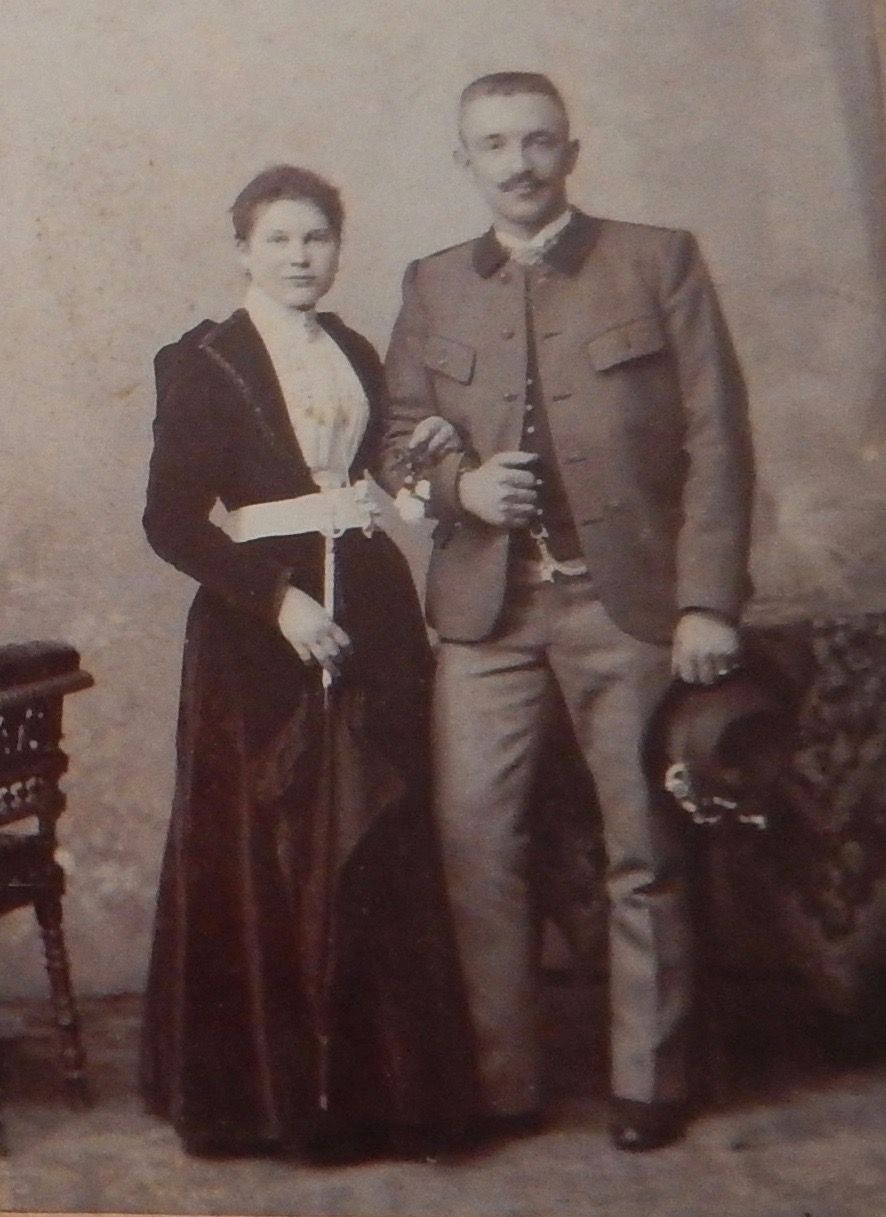
Andrew's Slovene great-grandparents
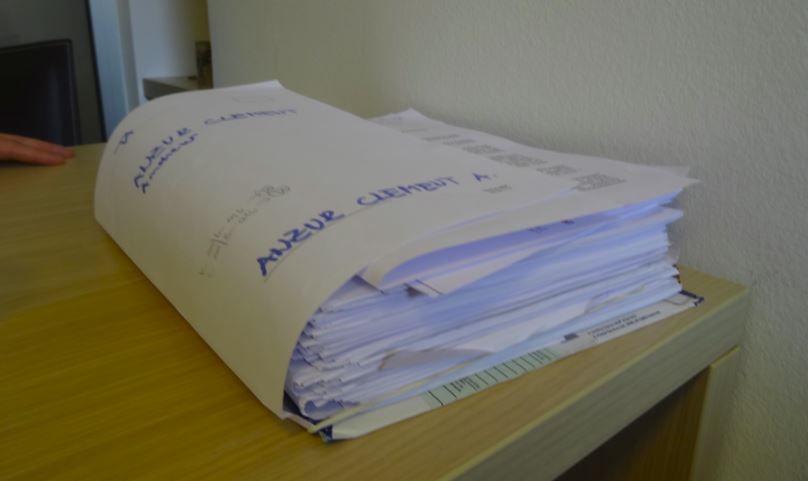
The paperwork needed for citizenship
Do you feel at home here yet?
Yes! I’ve spent the last decade travelling, living in 10 different countries and travelling to over 50. During that time, I’ve come to Slovenia at least once a year. So, living here feels oddly like coming home.
What things do you miss about America?
The food, but not in the way you might think. I grew up in a Chinese community in the Los Angeles area and still have fond memories of lazy afternoons spent with my Asian-American friends from high school, cracking silly puns and sweating over hot pot, or the sizzling meat of Korean barbeque.
What things are still confusing for you here?
The smallness. At times it seems as if everyone knows everyone. This can make it paradoxically hard to break into the ‘inner circle,’ because it can be close knit like a giant extended family. I’m also sometimes befuddled at how small things can seem like big problems. For instance, with relation to the recent parliamentary elections, I was surprised to find that a court ruling about 17km of railroad track could bring down the government.
What things do you really like about here?
The smallness, too. Because Slovenia is small, it’s a very liveable country. In Ljubljana, you can walk, bike, or bus basically anywhere. The country seems to have only one of everything, but that one thing is always very, very nice. It’s the small country that has it all.
This is the fifth book you’ve published this year. What’s your writing process?
I write full time, every day, and I get my inspiration from my travels. For instance, my current series, Voyages of Fortune was inspired my first trip to Celje in 2017, where I was captivated by the stories of Alma Karlin and the Counts of Celje. I left determined to tell a story that connected them.
In terms of process, I make a general outline, which usually gets changed a bunch of times because I tend to discover interesting new story developments as I write.
I always write on a computer. It may sound funny, being a writer, butI have a condition called disgraphia. This essentially means that every time I spell a word, it’s like spelling it for the first time. Word processing devices are a helpful for overcoming this. Also, thank God for my editor!
Is there a lot of research?
Yes. As a writer of historical fantasy it’s not really optional. For my first trilogy, Keepers of the Stone, a lot of the research came from things I learned during my travels. My academic background relating to national identity formation and migration also figures into developing the internal conflicts of my characters. Even then, I have to do more research to fill in the blanks. For Voyages of Fortune, I’ve had to do a good amount of research into medieval European history and Alma’s travels. A lot of the materials are only available in Slovene, so it has been great for my language skills!
Where and when do you usually write?
I usually write in NUK, the National and University Library, or along the Ljubljanica river in the neighbourhood of Trnovo. If I’m travelling, I have a weird quirk of writing while on trains, planes and buses.
How much of the first draft makes it into the final draft?
About two thirds of it. It’s really true that to write compelling characters, you have to get to know them better than you know most people. When they aren’t ‘speaking’ to you, the best way around it is to overwrite and edit down. That way you can show what motivates them, as opposed to just telling it.
What have you learned about writing since starting the first book?
Writing – and more accurately editing – is a process. It doesn’t always go easily and it’s not meant to. I’ve developed a system where I interrogate everything I write by relentlessly asking ‘Why?’, ‘Who cares?’, ‘Oh, really?’ and ‘So what does it mean?’ If I can’t quickly answer each question, it needs to be taken out or changed. Especially on a first edit, this can be frustrating. But it makes the process faster and it’s a great feeling when you finally chisel the diamonds from the dirt.
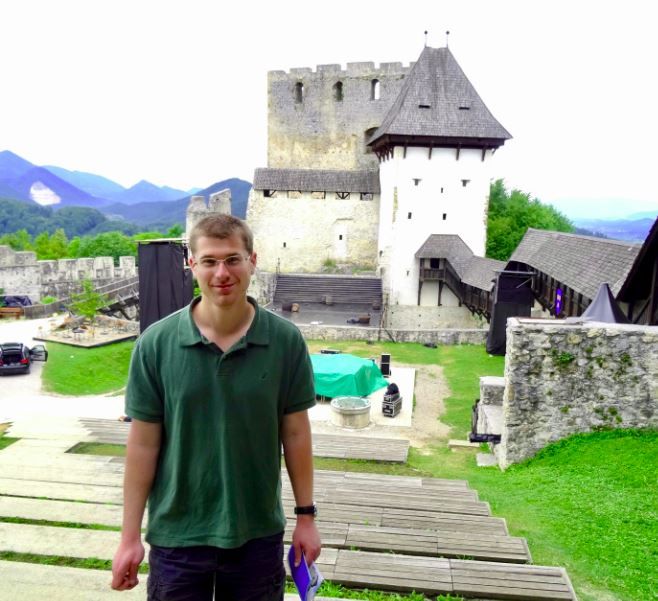
At Celje Castle
The new book seems to be more Slovene than the previous ones. Can you say how Alma Karlin and the Counts of Celje feature in it?
As Voyages of Fortune, Book One opens, eight-year-old Alma is playing in Celje castle. She discovers a bundle from the Counts of Celje entrusting her with a secret quest to protect magical artifacts that are scattered around the world from the evil schemes of fallen angles and demons who seek their power. There’s also time travel, people who can turn into cats, and a pirate ship that sails by folding space. Just go with it....
Who is the book aimed at?
Generally, fans of historical fiction and fantasy. However, Voyages of Fortune is also a story about rediscovering Slovenian roots that you never knew you had. The main character is an American who discovers that he is the direct descendant of Count Friderik and Veronika of Celje, that his parents were members of the secret guild the Counts of Celje founded and that he is destined to accompany Alma on her quest. It’s a story about discovering a whole identity and purpose you never knew you had.
Where can people buy it?
I’m focused on Amazon so it’s available there as an e-book in any of the Amazon online stores, or in a paperback version for those who prefer. Voyages of Fortune Book Zero, the prequel novella of ‘origin stories’ related to the characters is available on my website for free.
What are your plans for the summer?
Hang out in Ljubljana and write! Voyages of Fortune Book Two is almost ready to send to the editor. But Book Three isn’t going to write itself. I’m also really excited about starting my next series of books, Tito’s Lost Children, an outright historical that’s set during the breakup of Yugoslavia. Book One of the series will deal with Slovenia’s Ten Days War of independence.
You can see all of Andrew’s works on his Amazon page, with the next one no doubt only a few weeks away from completion, while the cover and blurb for his newest story are as follows:
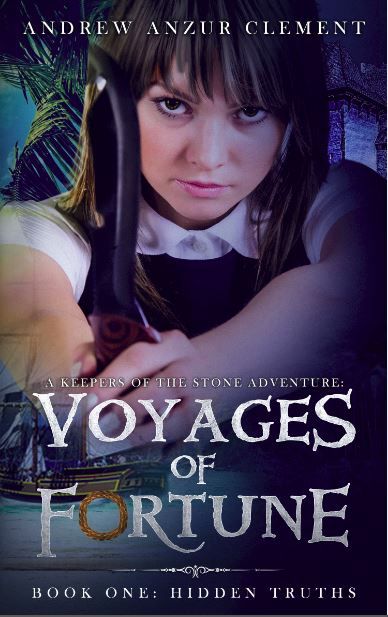
Divergent times. Distant lands. Different missions. One gambit.
In Austro-Hungary: 1898: a sickly girl discovers a bundle of instructions addressed to her by a legendary nobleman, who lived centuries ago. He entrusts her with a powerful ring and mission to protect the world from the ambitions of both factions of a mystical power struggle. It will require her to embark on a quest that will cause her own culture to reject her; the girl knows she has to accept. Now an outcast, she must outwit the Society’s and the Urumi’s evil designs as she attempts to alter a series of magical devices that can give anyone the power to control the world.
In Thailand, 2004: Mei Hua and Mark, two unvalued interns, are swept out to sea by a giant wall of water. They are rescued by a space-folding sailing ship, crewed by a gang of pirates. To survive, Mark and Mei are required to join forces with the mercenaries and fight to retrieve another powerful object that – known only to the ship’s enigmatic captain – can make the world descend into chaos. Trapped on the strange ship, Mei and Mark must find it within themselves to keep this artifact from falling into the wrong hands – assuming they can determine whose hands those are.
In Russia, 1889: Natalia, the untested heir of her gypsy camp, finds herself in charge when her grandmother is abducted by an enemy her troop is not prepared to fight. The situation seems hopeless; from a secret buried deep in her past, Natalia knows it is her fault. Then a mysterious note from a sender she does not know offers an impossible way out – one that will doom her troop to slavery, or worse, if it fails. Natalia must find her inner courage and overcome the demons of her past if she is to lead her troop to salvation.
These are the Voyagers. Each believes they are working for their own ends. They are dead wrong. They have unknowingly become pawns in a centuries-spanning gambit to control time and the world itself. Their paths are about to cross. All that remains to be seen is: who is really about to take over?
And you can read the start on Amazon.

